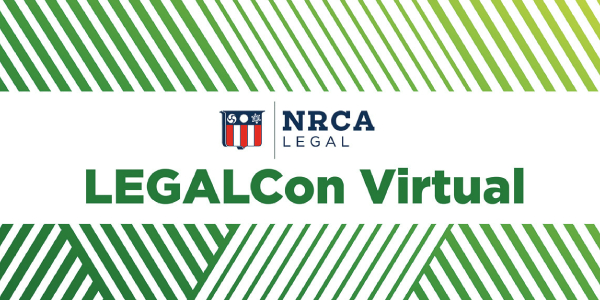UP TO THE MINUTE
9 strategic tips for I-9 compliance
August 6, 2025 at 3:00 a.m.By Mary Kate Fernandez, Adams and Reese.
Learn how to avoid I-9 issues as your business navigates mergers and acquisitions.
In today’s industry, we are seeing a rise in the frequency of mergers, acquisitions, asset sales, private equity transactions and more! This all makes for an exciting, fast-paced market where paperwork might accidentally slip through the cracks. Here at Adams and Reese we know that keeping track of all the details and paperwork, such as I-9 forms, is key to avoiding issues such as civil penalties, government inquiries and workforce disruptions. In this article, we share insights into how businesses acquiring U.S. operations or workforce segments can make sure they are compliant with I-9 forms.
I-9 compliance, mandated by the Immigration Reform and Control Act (IRCA), refers to the process employers must follow to verify the identity and employment authorization of individuals hired for work in the United States. Immigration-related risks tied to employment eligibility records are real and can derail your post-closing success. Here is an I-9 compliance checklist for businesses to follow when engaged in merger and acquisition deals.
Strategic I-9 due diligence: What to review pre-closing
1 - I-9 inventory and accuracy
- Are Form I-9s on file for every employee hired since November 7, 1986?
- Are all forms completed correctly and using the current version?
- Has the seller conducted any internal audits or self-remediation?
2 - Government inquiries or enforcement history
- Has the seller received SSA No-Match letters or notices from ICE, DHS, DOJ or DOL?
- Are there any pending investigations or prior settlements relating to immigration compliance?
3 - Status of foreign national employees
- Does the target employ workers on temporary visas (e.g., H-2B, H-1B, L-1, TN)?
- Have the required reverifications been completed and documented (via Supplement B)?
- Are public access files for H-1B, E-3 or H-1B1 employees complete and up to date?
4 - E-Verify participation
- Is the company enrolled in E-Verify?
- Is participation required under state law or government contracts?
- Has the seller consistently used E-Verify across worksites?
5 - Subcontractor and joint employment risk
- Does the seller use staffing agencies or subcontractors for any portion of its workforce?
- Are there protocols for verifying compliance downstream?
6 - Strategize onboarding
- Will the seller’s workforce be treated as continuous employees?
- Or should employees be treated as new hires with new I-9s completed?
7 - Contractual protections: Recommendations for deal teams
- Incorporate representations and warranties confirming I-9 and immigration compliance.
- Use a schedule of exceptions to disclose known deficiencies.
- Negotiate indemnities tied to I-9 audit outcomes.
- Consider post-closing certification requirements for workforce integration.
8 - Documentation request list: Key materials to collect
- Collect current employee roster with visa status, worksite, and status expiration dates.
- Collect all I-9 Forms and retention logs.
- Obtain copies of visa petitions, I-94s, USCIS/DOL correspondence and SSA mismatch letters, if any.
- Obtain public access files for each H-1B/E-3 employee.
- Provide written policies regarding onboarding, reverification and recordkeeping.
9 - Post-closing items for buyers
- Perform an internal audit of inherited I-9s.
- Prioritize technical remediation where employee cooperation is still possible.
- Retain all original forms and document changes made post-closing.
- Centralize and align I-9 and E-Verify policies across legacy and acquired entities.
Conclusion
Ultimately, the excitement of a merger and acquisition deal should be matched with the diligence of I-9 compliance. As this checklist demonstrates, neglecting the meticulous review and management of employment eligibility records can turn a promising acquisition into a costly liability.
I-9 errors can reflect systemic recordkeeping failures that can jeopardize closing timelines or expose buyers to future fines or workforce interruption. Early identification and structured remediation are critical – both to protect the acquiring entity and to meet regulator expectations.
By prioritizing early identification and structured remediation of potential I-9 errors – from pre-closing due diligence to post-closing integration – buyers can effectively protect their investment, avoid significant fines, and ensure a seamless workforce transition.
Proactive I-9 compliance isn't just about avoiding penalties; it's about safeguarding the future success and stability of your newly integrated enterprise.
Original article and photo source: Adams and Reese
Learn more about Adams & Reese LLP in their Coffee Shop Directory or visit www.adamsandreese.com.
The information contained in this article is for general educational information only. This information does not constitute legal advice, is not intended to constitute legal advice, nor should it be relied upon as legal advice for your specific factual pattern or situation.





















Comments
Leave a Reply
Have an account? Login to leave a comment!
Sign In